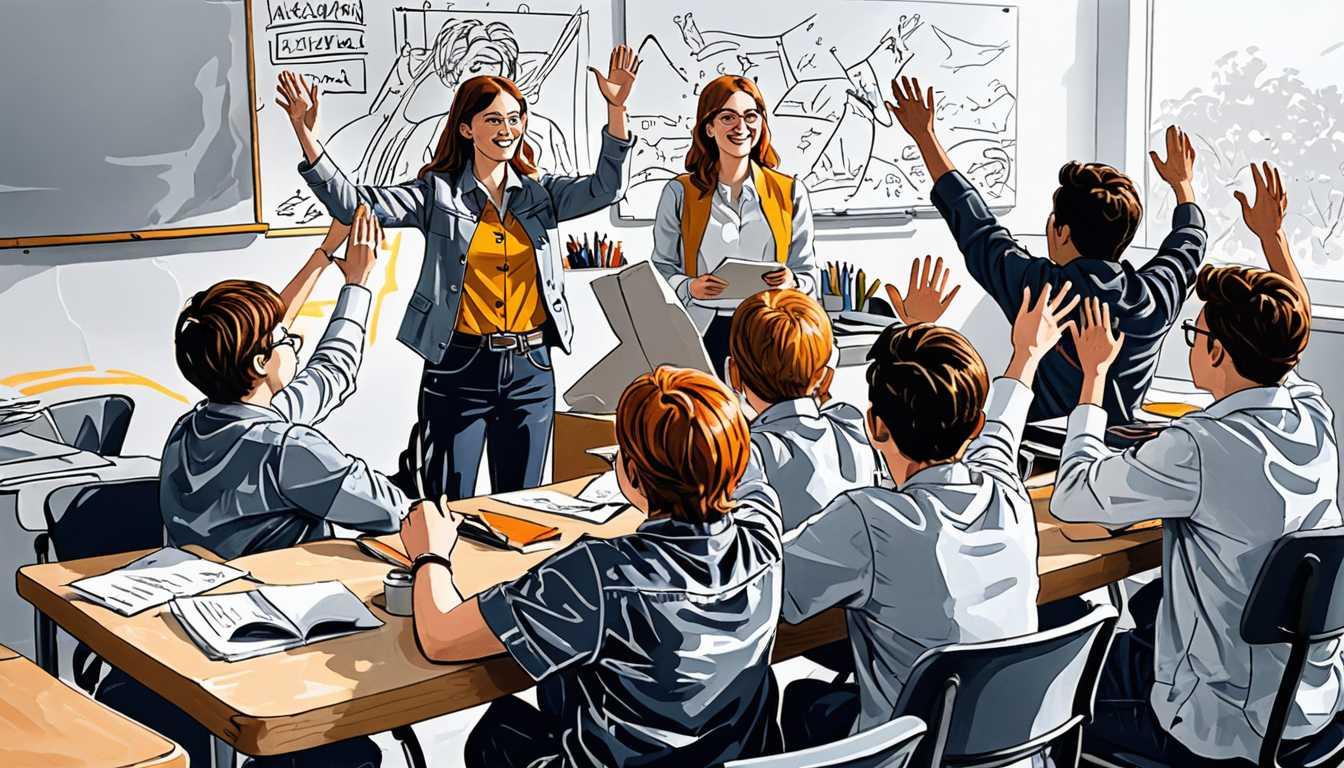Wordle: Fun Game or Reading Booster?
August 2024
Harvard Gazette
Introduction
Hey there, Wordle warriors! Ever wondered if playing Wordle boosts your reading skills? According to Harvard's brainy expert, Nadine Gaab, it might not make you a super reader, but it sure activates some key brain areas! While it’s fun and engaging, don’t ditch the books just yet. So, gather your friends for a game night, but remember, balance is key! Dive into this article from the Harvard Gazette to discover how games like Wordle can fit into your learning journey!
READ FULL ARTICLEWhy It Matters
Discover how this topic shapes your world and future
Unlocking the Power of Play and Reading
In our fast-paced world, finding fun ways to learn is more important than ever, and games like Wordle are at the center of this exciting conversation! While some people believe that playing word games can magically make you a better reader, the truth is a bit more nuanced. Researchers, like Dr. Nadine Gaab, explain that while Wordle can activate areas of the brain related to reading, it’s not a substitute for comprehensive reading skills developed over time. Instead, games can engage young minds, promote social interaction, and spark joy in learning. The global implications are significant - as we increasingly rely on technology for education, understanding how different types of play can contribute to cognitive and emotional development is crucial. So, whether you’re playing Wordle with friends or diving into a book, the key is to enjoy the process and recognize that every bit of engagement contributes to your growth!
Speak like a Scholar
Cognitive Abilities
The mental skills that include thinking, learning, and remembering. They help you process information and solve problems.
Literacy
The ability to read and write effectively. It’s not just about knowing words but understanding their meaning and using them in communication.
Engagement
This refers to being actively involved or interested in something. When you’re engaged, you’re more likely to learn and enjoy the experience.
Orthographic Mapping
The process of connecting sounds to letters in words. It’s like creating a map in your brain to help you read and spell correctly.
Neuroscience
The scientific study of the nervous system, including the brain. It helps us understand how our brain functions when we learn and play.
Emotional Intelligence
The ability to recognize and manage your own emotions and understand the emotions of others. This skill is vital for effective communication and relationships.
Independent Research Ideas
The Impact of Digital Games on Literacy Development
Investigate how playing different types of online games influences reading skills compared to traditional reading methods. This could reveal the strengths and weaknesses of digital versus print learning.
Social Interaction in Educational Games
Explore how multiplayer games like Wordle foster collaboration and communication skills among peers. This study could highlight the social benefits of learning through play.
The Role of Early Childhood Play in Language Acquisition
Analyze how different types of play activities, including word games, contribute to language skills in preschool-aged children. Understanding this could inform better teaching practices.
Comparative Study of Game-Based Learning Versus Traditional Learning
Examine the effectiveness of game-based learning strategies compared to conventional teaching methods in enhancing student engagement and retention of information.
Exploring Emotional Benefits of Word Games
Research how playing word games impacts students’ emotional well-being and motivation towards learning. This could provide insights into the psychological benefits of engaging in educational play.
Related Articles

Balancing Books and Screens: A Reading Guide
July 2024
MIT Technology Review

Dyslexia: A Hidden Advantage in Research
November 2024
King's College London - News

Brainwave Sync: Learning's Secret?
April 2023
New York University

Books: Your Brain's Superpower
June 2023
University of Cambridge

Self-Esteem Boost: Writing About Identity & Values
July 2024
Cornell News Highlights